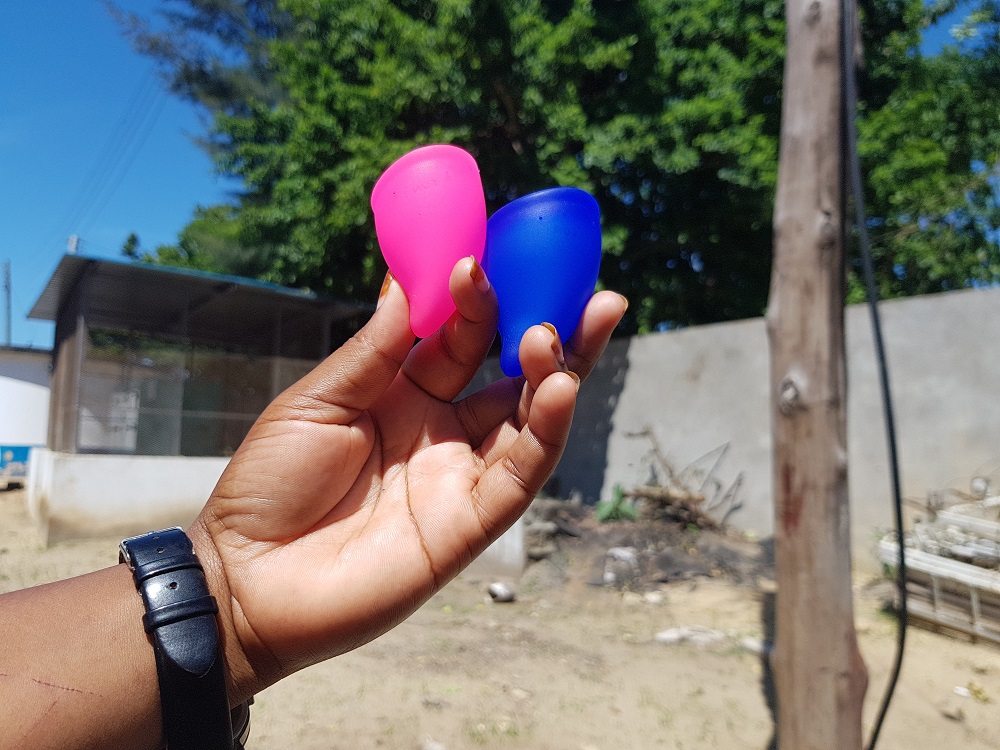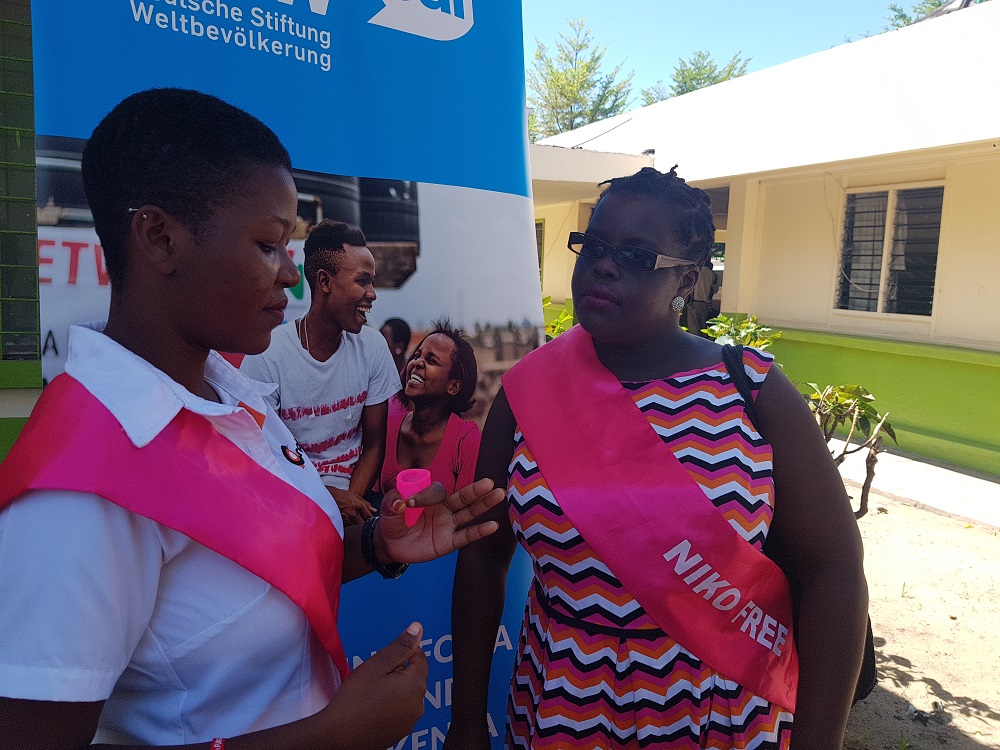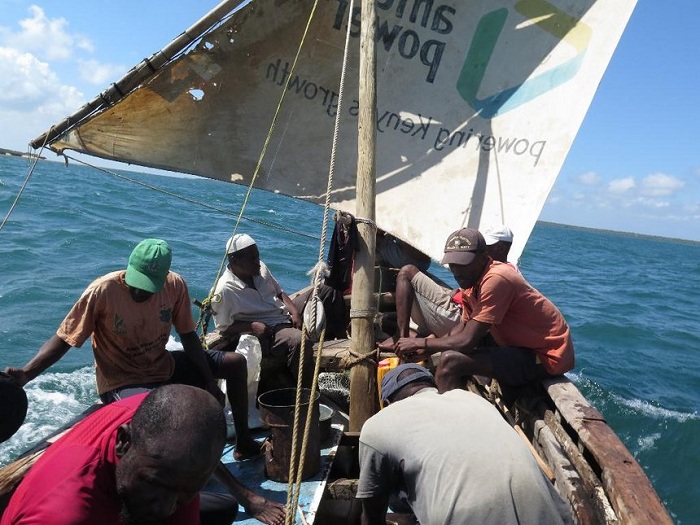
Mombasa, KENYA: A group of ladies in Mombasa is advocating for the use of menstrual cups instead of sanitary towels as a way of managing monthly periods; arguing that it’s cheaper and environmentally friendly compared to the latter.
The ladies aged between 18-28 years are part of 50 girls/women chosen from different areas in Mombasa and Kilifi to be part of the pilot phase of the project dubbed Niko Free; who since last year July have been using the menstrual cup to test its effectiveness in the region.
28-year-old Florence Otieno from Stretchers Youth group in Changamwe, is among the beneficiaries of the project and has since become an ambassador advocating for the use of a menstrual cup, saying that she no longer has to worry about leaking.
“My work involves going to the field and I move a lot; ever since I started using the menstrual cup I no longer stain my clothes and I don’t have to worry about changing pads as it is with sanitary towels.” Said Ms. Florence Otieno.
The Niko Free project is an initiative by Non-Governmental organization DSW Kenya to improve access to appropriate and safe menstrual management methods for girls and women in the informal settlements of Mombasa.
According to DSW field officer in charge of the project Juliana Mwaega, the 50 girls/women were picked from different Youth empowerment centers in Mombasa and Kilifi.
“We got 10 girls from 5 groups; that is Pwani Youth Network in Jomvu, Stretchers Youth Organisation from Changawme, Dream Achievers Kisauni, Hands of Mercy from Maweni and Safe Community in Kilifi where the girls on a voluntary basis were each given a set of the menstrual cups(two per set) and trained on how to use it.” Said Ms. Mwaega.
She added that the reason as to why they introduced the feminine hygiene product that is usually inserted into the vagina during menstruation, is because many girls in the region lack sanitary pads hindering them from participating in various school activities.
“Being that one can use the product for a period of 10 years, we saw this as an economic friendly product that can be used to help girls in the region. We got the products from our head office in Germany and being that we were not sure if it will work here we requested for 50 products to acts as an experiment,” she added.
However, she insists that the Menstrual Cup must be emptied, washed with hot water and reinserted at least 2 times a day (twice in a 24 hour period); this is to avoid infections.
It can be worn overnight without concern of leaking. Most women need only to empty it in the morning and again in the evening.
“By monitoring the fullness of the cup over a couple of cycles, one will quickly learn how often to empty it according to their specific needs. Most women find that the cup is not even half full after 12 hours.” She added.

As a way of marking World Menstrual Hygiene Day marked on 28th May every year, Florence together with other beneficiaries of the Niko Free project; through the help of DSW, organized an awareness program of the benefits of using menstrual cups.
“Every month I used to spend sh.200 every month but ever since I started using the product I have been saving a lot as I can use it for the next 10 years and so together with others, we decided to use this day to create awareness of the product so that others may also learn about it.” Said Florence.
On the other hand, Keziah Oloo, 26, a team leader from Pwani Youth Network in Jomvu, says the feminine hygiene product has helped reduce environmental pollution and personally she has been having allergic reactions from using the normal sanitary pads but that has not been the case for the menstrual cup.
“Using the product for 10 years means you will not be disposing any pads during that period; hence reducing pollution and I used to get rashes ever since I started using pads but with menstrual cups, it is made of Silicon which is body friendly.” Said Ms. Keziah.
At the moment a menstrual cup in Kenya ranges from sh. 500- sh. 3, 600 on online selling platforms and as a way of empowering the youth groups, DSW is planning to help some of them import the products and help them start a business.
DSW field officer in charge of the project Juliana Mwaega has called upon the county government to consider buying the products to help girls living in informal settlements who can’t afford sanitary pads, now that the product has been well received.
“The county government needs to invest in this product as it lasts for a longer period compared to sanitary pads. However, as we consider this they have to ensure that clean water is available as the product goes hand in hand with water so as to ensure it’s well cleaned without any soap nor anti-septic, just hot water.” Said Ms. Mwaega.
Aside from it being a preferred choice, some ladies find them uncomfortable and depending on the culture; some do not prefer it as it at times breaks the hymen, which some consider as a symbol of virginity. This is a challenge that Ms. Mwaega says has been facing them as they try to advocate for the use of menstrual cups.












